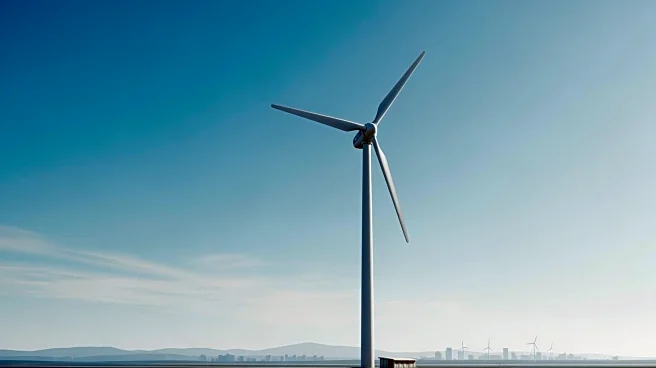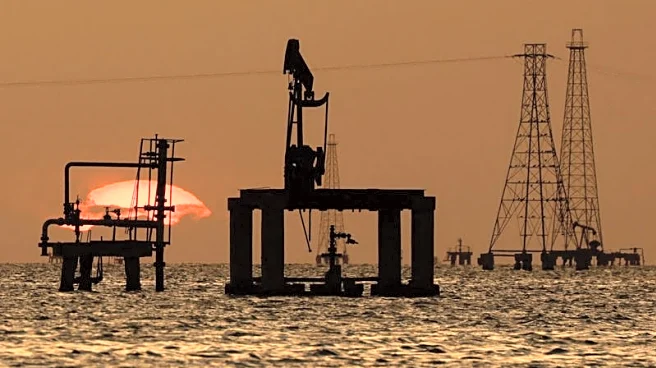What's Happening?
A study conducted by the University of Central London (UCL) has revealed that wind-generated energy has provided significant financial benefits to UK consumers. The research, published in UCL Open Environment,
found that from 2010 to 2023, wind energy reduced electricity bills by £14.2 billion and decreased natural gas costs by £133.3 billion. Despite a nine-year moratorium on new onshore wind farms imposed by previous Conservative administrations, the current Labour government has lifted these restrictions. The study emphasizes the long-term Merit Order Effect (MOE), which shows how low-cost renewable energy can lower wholesale electricity prices. The net benefit of wind energy for consumers was calculated at £104.3 billion over the 13-year period, considering the £43.2 billion in green subsidies paid by consumers.
Why It's Important?
The findings of the UCL study underscore the economic advantages of wind power, challenging misconceptions about the cost of transitioning to green energy. The study suggests that wind power should be viewed as a public good, similar to schools and roads, where both governments and citizens can benefit from strategic investments. The reduction in energy costs due to wind power has been particularly significant given the rising prices related to geopolitical tensions, such as the war in Ukraine. The study raises questions about the fairness of funding the transition to renewables, highlighting that natural gas consumers are the biggest beneficiaries of reduced energy bills.
What's Next?
The study calls for a reevaluation of how the transition to renewable energy is funded and who benefits from it. It suggests that further investment in wind power could continue to provide substantial economic benefits, not only for consumers but also for the environment. The findings may influence future policy decisions regarding renewable energy subsidies and investments, potentially leading to increased support for wind power development.
Beyond the Headlines
The study highlights the need for a broader understanding of wind power's role in the energy market, emphasizing its potential to lower costs and reduce reliance on fossil fuels. It suggests that viewing wind power purely in business terms overlooks its environmental and economic benefits, advocating for a more strategic approach to renewable energy investment.











